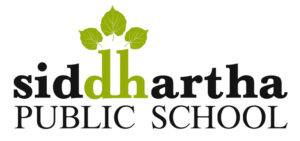
FOUNDATION
Our school curriculum is divided into four streams: Foundation, Preparatory, Middle school and senior school age appropriately. Foundation includes Pre-primary to Grade 2 (3 to 7 years of age).
Foundation Level
our curriculum is mainly based on activity-oriented, and we use the blended curriculum of Waldorf and Montessori methods for certain topics so that our students practice by thinking, feeling and doing (head, heart and hands), here the holistic development of the child comes from within the child himself/herself.
It is entirely child-centric education where the teachers are only being the mentors and guides. The environment is completely value-based in which every child’s personality can be developed and made to blossom and grow to its fullest potential. The system that we follow here recognises the importance of a child’s first six years of development when the child’s power of absorption is the highest and lifelong attitudes and patterns of learning are firmly formed.
Here the children are individually assessed authentically based on their performances, products and process. There are five cycles of assessments in a year. Assessments are also normally activity-oriented. Children are trained for creative writing. Pen & paper test is held just for writing practice. Teachers are specially trained to handle the children.
PREPARATORY
Grades III – V
The curriculum designed by SPS administration is combined with Altura, the private publisher (Macmillan) with the following subjects:
- English
- Languages : Hindi/Telugu
- Core Subjects : EVS, Mathematics
- Other subjects : Art Education, Computer, Physical Education. And all the other extracurricular activities.
MIDDLE SCHOOL
Our standard of teaching and learning process is strictly maintained to ensure holistic development through inculcating 21st century skills. The school follows the CBSE curriculum. The medium of instruction is English in all the classes from Nursery to 12th Grade. The major emphasis of the curriculum is on the continuous growth of students, ensuring their physical, emotional, intellectual, imaginary, spiritual, cultural and social development. Importance is given to both the Scholastic and Co-scholastic aspects. Our teachers are trained to use multiple resources to map the curriculum to be implemented.
Academic and academic activities are equally enriched in our schools for the overall development of students. Both academic and extracurricular activities are conducted to energise young minds and help them to face every aspect of life with ease. Our students participate in various competitions to showcase their hidden talents to the world.
The following are our academic and non-academic parts of the school curriculum.
- English
- Languages : Hindi/Telugu/Sanskrit
- Core Subjects : Mathematics, General Science and Social Science
- Other subjects : Art Education, Information technology (I.T), Physical Education.
- Other Extra Curricular Activities:
- Vocal Music/Arts & Craft/Yoga/Martial Arts
- Instrumental Music ( Piano, Guitar, Drum, Ukulele and Tambala)
- Dance (Western and Classical)
- Skating/Swimming/Cricket/Basketball/Tennis/Badminton
SECONDARY SCHOOL
The secondary school curriculum envisions the all-round development of students which emphasises on the integration of co-curricular domains with curricular activities in an equitable manner.
The curriculum is learner-centred, with school being a place where students would be acquiring various skills, building self-concept, sense of enterprise, aesthetic sensibilities and sportsmanship. Therefore, for the purpose of fostering core competencies in learners, this curriculum encompasses six major learning areas, from scholastic and co-scholastic points of view.
| Languages | Scholastic |
| Science | |
| Mathematics | |
| Social Sciences | |
| Health and Physical Education | Co-scholastic |
| Art Education | |
| Information Technology (IT) | Additional Skill Subject |
Assessment will be based on CBSE instructions. Throughout the year, the students are authentically assessed as Performance-based, Product-based, Process-based, and Constructive questions.
There will be continuous evaluation of Note Book maintenance on the following parameters
(i) Regularity
(ii) Assignment completion
(iii) Neatness & upkeep of notebooks
Subject Enrichment Activities comprises various techniques like ASL/ Reading/ Dictation/ Debate/Public Speaking etc. for languages. Lab Activities/Projects/Map Work/Model Making, etc., for other subjects.
21st Century Skills in SPS
Apart from the prescribed curriculum and assessment system, all the school activities are assessed through the 21st-century skill rubrics. Every activity is to bring out 12 Cs in children. The school has a theme and legend for each month stream-wise. All these activities are to bring out 21st-century skills.
12C’S OF 21ST CENTURY SKILLS
The 12 C’s under 21st-century skills is an expanded version of the commonly mentioned 4 C’s (Critical Thinking, Communication, Collaboration, and Creativity) that are essential for thriving in the modern world. These additional C’s encompass a broader range of skills that are relevant for success in the 21st century. Here are the 12 C’s:
- Critical Thinking: Analyzing information, evaluating evidence, and making informed decisions.
- Communication: Expressing ideas effectively through verbal, written, and digital means.
- Collaboration: Working effectively with others, valuing diverse perspectives, and contributing to team efforts.
- Creativity: Thinking innovatively, generating new ideas, and approaching tasks with originality.
- Cultural Competency: Understanding and respecting diverse cultures, and working with people from different backgrounds.
- Computational Thinking: Applying principles of computer science, such as problem-solving and algorithmic thinking, to real-world situations.
- Coding: Developing programming skills to create and manipulate digital technologies.
- Civic and Ethical Literacy: Understanding civic responsibilities, ethical decision-making, and engaging as active citizens.
- Character Education: Fostering qualities like integrity, empathy, perseverance, and responsibility.
- Curiosity: Cultivating a lifelong love for learning, asking questions, and seeking knowledge.
- Critical Consumption of Media: Being discerning consumers of media, recognising bias, and evaluating information sources.
- Career and Learning Adaptability: Developing the ability to adapt to changing career paths and the continuous learning required in the 21st-century workforce.
These 12 C’s encompass a wide range of skills that go beyond traditional academic knowledge and are crucial for personal, academic, and professional success in the rapidly changing global landscape. Educational systems that emphasise these skills can better prepare students to navigate the challenges and opportunities of the modern world.

